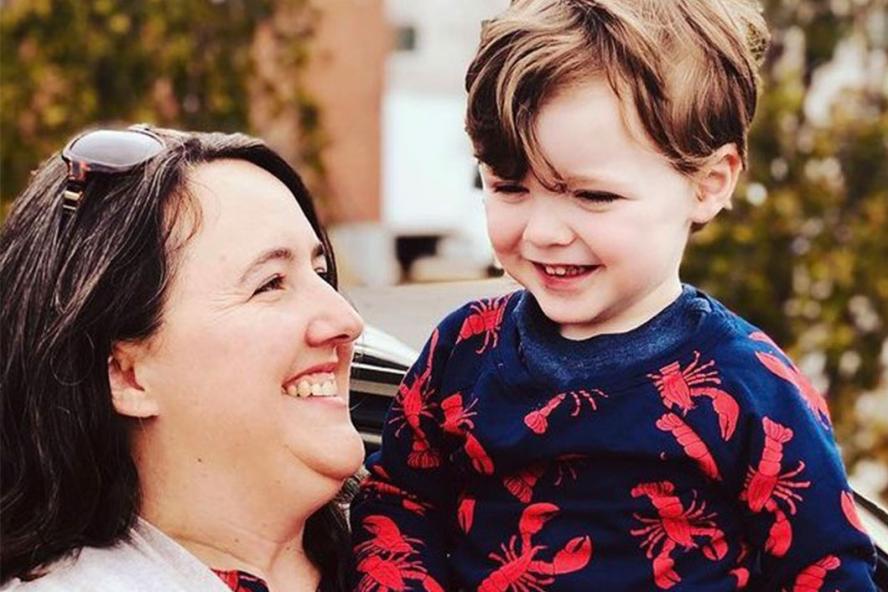Instructor Spotlight: Jeanna Kinnebrew

Tell us about your background and what inspired you to teach this course
Jeanna Kinnebrew: I grew up in Tennessee and was the first person in my family to attend college. I applied to Harvard - on a bit of a whim, honestly - and somehow got in! Moving to the Boston area opened my eyes to so many things, especially the problems with what I had been taught as a kid about sex, sexuality, and consent. So, after college I moved home and began working with Planned Parenthood and the ACLU. After about a decade doing "boots on the ground" reproductive justice work, I went back to grad school so that I could learn more about it from the academic side: Why does sex education look so different state to state? What's going on with this strange American dichotomy where we sexualize so many things but then are afraid to talk frankly about sex itself?
Sex Education is, and has often been, a controversial topic, especially considering recent laws throughout the country. What do you hope to achieve with this course?
JK: I believe that knowledge truly is power. It's so important to understand the historical trajectory of how we got here in order to combat misinformation as well as chart a new path forward. I was thrilled when I found out that many of the students in this class are planning to pursue careers in fields like education, public health, and politics. I hope that these folks use their knowledge of how and why sex education has developed the way it has to improve things for the next generation.
What has your experiences been with Sex Education?
JK: When I was in tenth grade, we had one "Health and Family Living" class - taught by the soccer coach - that supposedly covered sex education topics. In practice, this meant that the soccer coach showed us a ten-minute video about the evils of abortion. She also told us that chewing gum was a gateway drug to marijuana. (What this had to do with sex ed, I have no idea.) Even at that age, I knew that something was missing - why would people have sex if it was no fun and just led to pregnancy? - but I didn't yet know how to verbalize it. In college I took a class called "Women's Behavioral Biology," which should have been titled "Everything you wanted to know in health class but were afraid to ask." We covered both the historical and contemporary aspects of things like menstruation, sex, pleasure, pregnancy.....it was great. Hopefully some of my EXP students will look back in twenty years and say the same thing about our class!
Give us a fun sex or sex ed fact!
JK: One 'fun' fact is that STIs (sexually transmitted infections) like syphilis, chlamydia, and gonorrhea have more than doubled among Americans 65 and older in the last ten years. Sexually active older people aren't worried about pregnancy anymore, but many of them never got any education on STIs or STI prevention as young adults. So, they don't think they need to use condoms or dental dams. Plus the stigma around 'Senior Sex' means that they might be afraid to ask their doctor if they have STI symptoms. I think this is a great example of why sex ed can't just be something that we associate with young people - it has to be a lifelong process.
What is something you are looking forward to in your course later in the semester?
JK: We have a fantastic slate of guest speakers coming to class - a historian of 'conversion therapy'; a sexuality educator with Planned Parenthood League of MA; and the director of Our Bodies, Ourselves Today. I'm excited for our students to have the opportunity to learn from and connect with these leaders.
Jeanna Kinnebrew spent over a decade working with Planned Parenthood of Tennessee and the ACLU of Tennessee. She is currently a PhD candidate in history at Boston University, writing a dissertation on Boston's surprising history as a sexual health center.